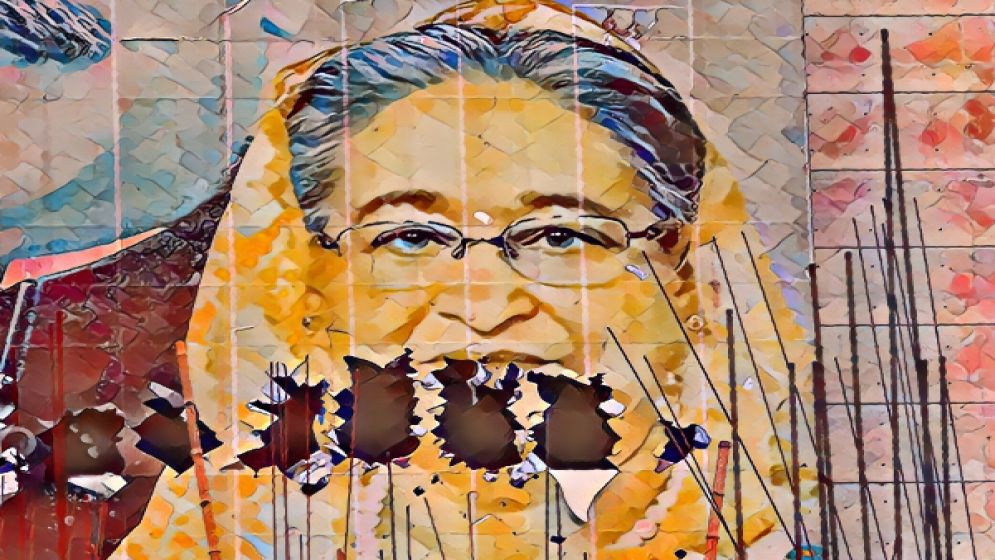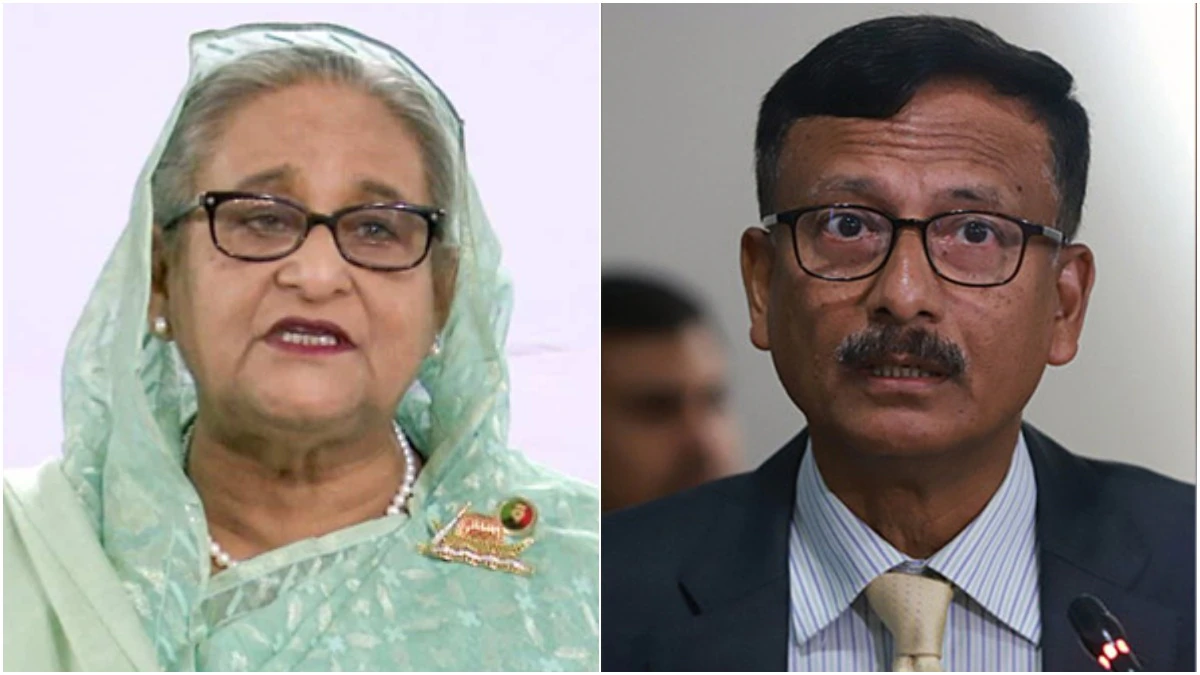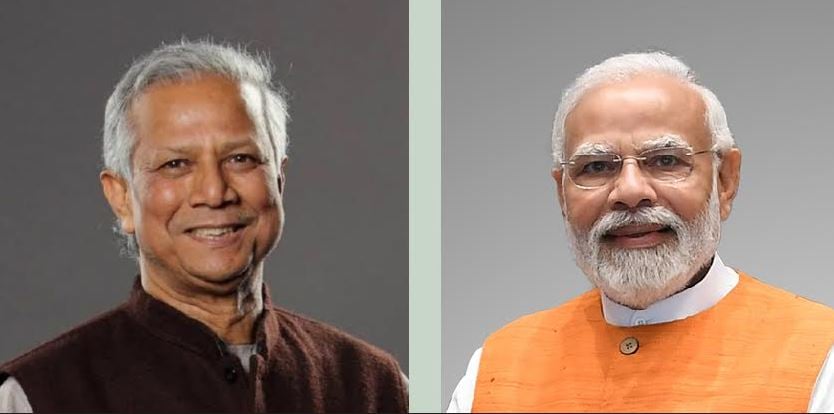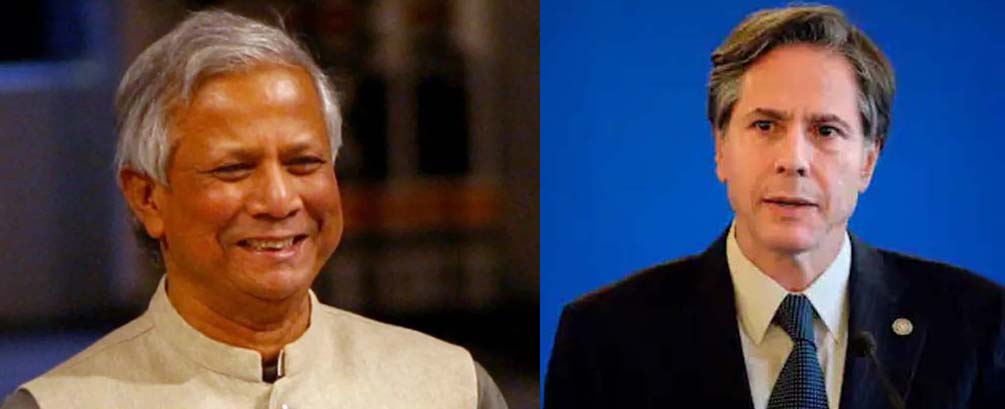Mounting cases, extradition calls: Will the ousted “Iron Lady” Hasina face trial in Bangladesh?

Within weeks of Sheikh Hasina being ousted from her position as Prime Minister of Bangladesh by a student-led uprising, the 76-year-old has faced at least three legal cases, including charges of murder.
The Bangladeshi foreign ministry is now contemplating formally requesting the Indian government, which is currently providing Hasina with asylum in New Delhi, to extradite her so she can stand trial in Bangladesh, according to a Reuters report.
The report cited newly appointed Foreign Advisor Touhid Hossain, who is equivalent to a foreign minister, stating that Hasina is confronting "so many cases" that if the home and law ministries decide, "we have to ask for her...return to Bangladesh," he said.
Touhid also conveyed his administration's dissatisfaction with Hasina’s recent statements in a meeting with Indian High Commissioner H.E. Mr. Pranay Verma on Wednesday. He noted that these statements "emanating from India are not conducive" to improving bilateral relations, according to a post on the official Facebook page of the Ministry of Foreign Affairs of Bangladesh.
On Tuesday, Sheikh Hasina made her first public statement since her removal from power, delivered through her son Sajeeb Wazed Joy, who resides in the US. In her statement, she characterized the violent protests leading to her ouster as "terrorist aggression" and called for accountability for those responsible for the "killings and sabotage."

Hasina demanded that appropriate punitive
actions be taken against those involved, following a thorough investigation.
She was referring to the violence that resulted in about 300 deaths and
contributed to the fall of her government, although she did not address the
charges against her.
After Hasina’s departure, protesters in Dhaka attacked and set fire to Sheikh Mujibur Rahman’s home which has turned into a museum. In her statement, Hasina condemned this destruction, stating it “dishonored Rahman and disrespected the sacrifices of many martyrs.”
Hasina also instructed members of her Awami League party to gather at the damaged “Bangabandhu Museum” on August 15, a day previously observed as a national day of mourning during her tenure. This date marks the assassination of her father, Rahman, and 15 other family members in 1975.
Why is Hasina's call problematic?
Analysts see her call for gathering party members problematic. “Hasina coordinating political acts of subversion against the current caretaker government from her safe house in India is similar to someone doing the same against Indian seven-sisters from Dhaka. The optics are terrible,” said Shfquat Rabbee Anik, a U.S based geopolitical analyst.
Shafquat also believes Indians will gradually increase cooperation with the Yunus government, while keeping the pressure up on certain issues that India cares the most about. “Examples include security for the Hindu minorities in Bangladesh and India's own securities interests,” he said.

Political analyst Zahed Ur Rahman meanwhile
told Bangla Outlook that "there is a clear shift in Dr. Yunus's
government's policy towards India compared to the approach of the Awami League
administration.”
Zahed said Dr. Yunus's government engages with India as an independent nation should, a stance that was lacking in the previous administration, which exhibited a submissive attitude towards India.
“Since Dr. Yunus took office, there have been explicit messages sent to India. Before our Foreign Advisor's statement, Dr. Yunus had already expressed in discussions with Indian media that India's policy towards Bangladesh was flawed and suggested improvements,” said Zahed adding that Yunus strongly challenged the misleading narratives propagated by various Indian media outlets.
For example, he said, Dr. Yunus addressed claims about the Awami League's involvement in incidents and attacks in Bangladesh, arguing that the party’s principles led to terrorism. “He also effectively countered accusations from Indian media about extremism being fostered by the Awami League government.”
“Specifically, Dr. Yunus warned that instability in Bangladesh could have repercussions for India's Seven Sisters region, West Bengal, Myanmar, and beyond. I believe Dr. Muhammad Yunus was correct in his statements to the Indian media,” he added.

Dr Shahab Enam Khan, professor of
International Relation of Jahangirnagar University meanwhile told Bangla
Outlook that Delhi has so far exhibited “a cautious response but has definitely
indicated its willingness to collaborate with the interim government.”
“In any case, the new government has been warmly appreciated by the major power blocs - the West and China,” said Dr Shahab, “Considering that Delhi places a high priority on national security in its regional foreign policy, it will ultimately align with the interim or post-interim government, even though AL is currently its only ally in the country.”
Dr Zahed said, the Awami League government has long undermined democracy in Bangladesh, weakened state structures, and engaged in various injustices, including extrajudicial killings, enforced disappearances, custodial torture, false charges, and other forms of repression.
“They have also corrupted the economy and committed atrocities at the start of the people’s uprising in July,” said Zahed, criticizing the Indian government for permitting Sheikh Hasina, head of such a corrupt and murderous government, to remain in India.
—-

